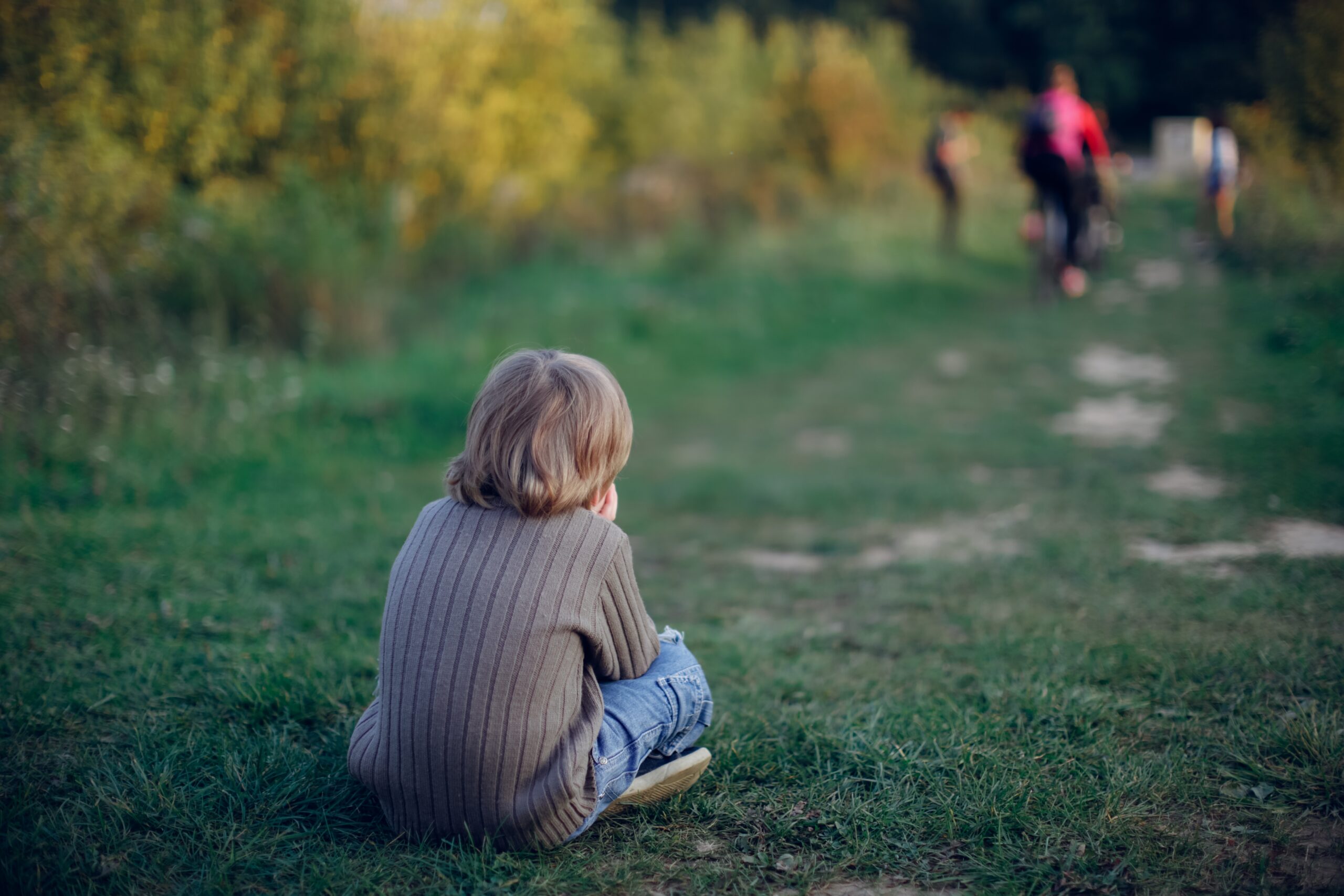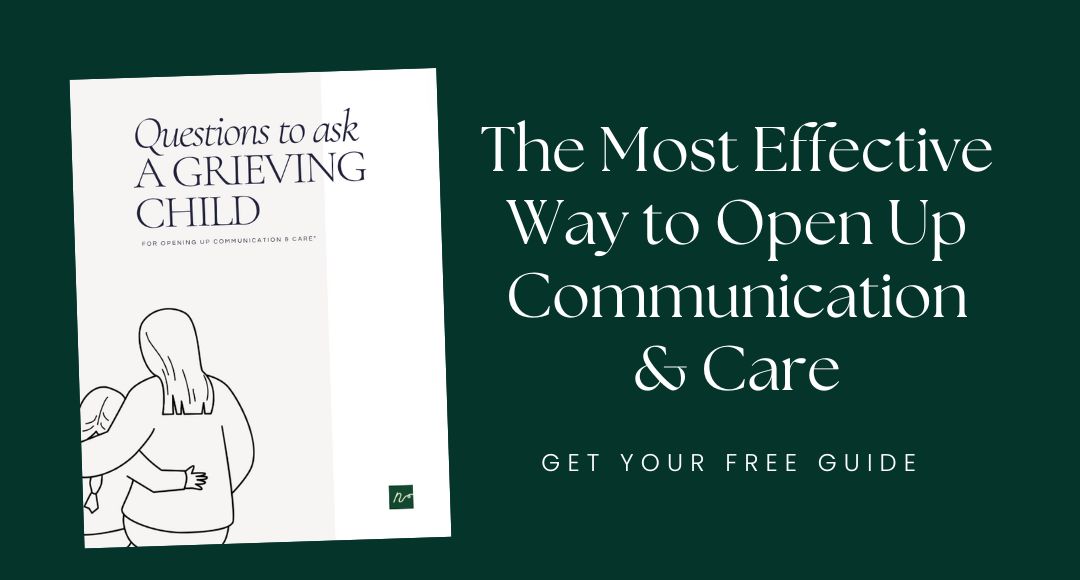
How to Help a Grieving Child: Compassionate Support Strategies
Grief is a complex process, and experiencing it through the eyes of a child can be especially challenging. Children may not have the words to express their feelings or understand the permanence of loss.
Whether the loss involves a family member, a friend, or even a pet, adults play a crucial role in guiding children through their grief journey. Here are several strategies to help a grieving child navigate their emotions and begin the healing process.
1. Open the Lines of Communication
Encourage Expression: Let children know that it’s okay to talk about their feelings, whatever they may be. Encourage them to share their thoughts and emotions, but don’t force conversations. Children may express grief in different ways, including through play or art, so be receptive to non-verbal forms of communication as well.
Be Honest: Use age-appropriate language to explain the situation. Honesty helps children understand what has happened and reduces confusion and fear about the unknown.
2. Provide Reassurance and Security
Maintain Routines: Keeping a regular schedule for meals, bedtime, and activities can provide a sense of normalcy and security for grieving children. (If you need help organizing meal support, consider creating a Care Registry.)
Offer Reassurance: Children may worry about their own safety or the possibility of losing someone else. Reassure them of their safety and the support of the people around them.
3. Encourage Expression of Emotions
Provide Creative Outlets: Art, music, and writing can be therapeutic ways for children to express their feelings. Consider reading an interactive feelings book, creating a memory box or a photo book as a way to remember the loved one.
Allow for Physical Expression: Physical activity can also be a healthy outlet for emotions. Encourage play, sports, or just being outside.
4. Support Through Rituals
Participate in Rituals: Funerals, memorial services, and other rituals can help children say goodbye and begin to process their grief. Discuss what to expect and offer choices about their level of involvement.
Create New Traditions: Establishing a new tradition in memory of the loved one can help children feel connected to them. This could be as simple as lighting a candle on special days or visiting a place that was significant to the deceased.
5. Be Patient and Provide Ongoing Support
Expect Ups and Downs: Grief doesn’t follow a linear path. Be prepared for grief to resurface, especially during holidays, anniversaries, or significant life events.
Seek Professional Help if Needed: If a child’s grief seems to interfere with their ability to function or lasts for an extended period, consider seeking the help of a therapist or counselor specialized in childhood grief.
6. Model Healthy Grieving
Show Your Own Emotions: It’s healthy for children to see adults expressing sadness or crying. This shows them that grief is a normal response to loss.
Share Memories: Talk about the loved one often. Sharing happy memories can be comforting and helps keep the loved one’s memory alive.
7. Educate About the Grieving Process
Explain Grief in Understandable Terms: Children benefit from understanding that grief is a natural reaction to loss and that it involves a range of emotions, including sadness, anger, confusion, and sometimes even relief. Explaining that these feelings are normal can help children accept their emotions.
Use Resources: There are books and online resources designed to help children understand death and grief. Reading a story about loss together can provide comfort and open up discussions about their feelings.
8. Foster Connections with Peers
Encourage Social Interaction: While some children may withdraw after a loss, maintaining friendships and social activities can provide essential support. Encourage participation in group activities or playdates with understanding peers.
Support Groups: Consider connecting your child with a grief support group for children or a camp for grieving kids. Being with peers who have experienced similar losses can make them feel less isolated in their grief.
9. Monitor for Signs of Complicated Grief
Be Vigilant: While most children navigate through grief with time and support, some may experience complicated grief, where intense emotions persist and interfere with daily life. Signs may include prolonged depression, significant changes in behavior or personality, withdrawal from loved ones, or a decline in academic performance.
Professional Evaluation: If you’re concerned about how your child is handling grief, don’t hesitate to seek a professional evaluation. Early intervention can prevent more severe emotional difficulties later on.
10. Embrace Hope and Healing
Promote Resilience: Emphasize the child’s strengths and how they’ve been able to cope with difficult emotions. Celebrate small victories and milestones in their healing process.
Plan for the Future: While honoring the memory of the loved one, encourage children to think about their own futures. Engage in conversations about hopes, dreams, and the things they look forward to can help shift focus toward the future, reinforcing the idea that it’s okay to move forward.
Offer Continuous Love and Support: Let children know that your love and support are unwavering. Remind them that it’s okay to feel happy again and that experiencing joy does not mean they have forgotten their loved one.
YOU Are the First Step to Help a Grieving Child
Ultimately, acknowledgement and presence are two of our greatest gifts to anyone grieving, regardless of age. By reading this article you have taken a great first step. Navigating grief with a child requires patience, understanding, and a willingness to adapt to their individual needs.
By providing a supportive environment that encourages open communication, emotional expression, and connections with others, you can help a child through their grief journey towards healing. Remember, healing doesn’t mean forgetting; it means finding a way to remember and honor their loved one while continuing to live a full and meaningful life.




